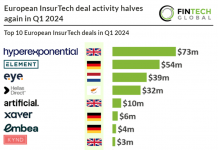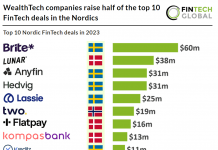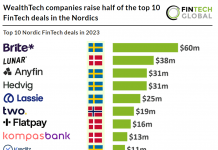Klarna’s CEO has hinted that it might soon go public despite the Swedish payment unicorn’s losses having jumped to $59.8m in the first six months of 2020, a sevenfold increase from the same period in 2019.
Moreover, its total net income came in at $531.23m between January and June, representing a 37% rise from the first half of last year.
The news comes in roughly one year after the buy now, pay later company saw its valuation skyrocket to $5.5bn on the back of a gigantic $460m funding round in August 2019.
Subsequently, Klarna has become one of Europe’s most valuable private FinTech companies, sharing the spotlight with Checkout.com and UK challenger bank Revolut that have both bagged $5.5bn valuations in the last year.
As a side note, Revolut recently reported that it had tripled its losses in the last year, with its two rivals Monzo and Starling Bank having both doubled its losses in the same period, raising the question as to how much trouble British neobanks are really in.
But let’s get back to Klarna’s growing losses. They have been driven by the FinTech’s international expansion efforts and due to it setting aside money in order to help it ride out the fallout of the Covid-19 pandemic, CNBC reported.
The company reported that its credit losses, which happen when customers don’t pay the money owed when using Klarna’s buy now, pay later services, jumped to $140m, a figure the venture said had been adjusted to deal with the market uncertainties caused by the coronavirus.
Klarna still maintained that it was in a “strong” position overall. In fact, Sebastian Siemiatkowski, CEO and co-founder of Klarna, told the Financial Times that Klarna might file for an initial public offering in the next “one or two years”.
While no more details about the IPO were given, Siemiatkowski said Klarna might emulate the Swedish streaming service Spotify and go public “at a time when you have proven your success but at the same time you have a lot of the growth curve ahead”.
The company reported that its credit losses, which happen when customers don’t pay the money owed when using Klarna’s buy now, pay later service, jumped to $140m, a figure the venture said had been adjusted to deal with the market uncertainties caused by the coronavirus.
“In the context of Covid-19 and the uncertainties it has unfortunately created for so many, a somewhat precautionary approach was necessary at times, including adjusting our credit policies globally,” said Siemiatkowski in a letter to shareholders. “Despite this, we have seen accelerated growth and rapidly increasing demand for our services.”
The Swedish unicorn was also keen to highlight how its US branch had added one million new consumers to its books in the past three months.
“Klarna has been well positioned to meet the challenges and evolving consumer needs in an uncertain marketplace over the last several months, as reflected by our global volume growth of more than 44%,” said David Sykes, head of US at Klarna.
“Our US network has grown to more than nine million consumers, we see an average of 20,000 new app downloads a day and thousands of retailers are partnering with us to implement forward-thinking strategies that will help them compete effectively, build lasting connections with consumers and provide the payment flexibility their consumers need during this time.”
Moreover, Klarna has been on a bit of shopping spree of late, having acquired UK-based e-commerce company Nuji in May and Italian payment company Moneymour in February to improve its underwriting capabilities.
Siemiatkowski and his co-founders Niklas Adalberth and Victor Jacobsson originally founded Klarna as Kreditor Europe AB in 2005 after having pitched the idea at an entrepreneurial competition at Stockholm School of Economics, which all three of them studied at.
They placed among the last pitches in the competition as the judges didn’t think there were anything in their idea.
Nevertheless, they believed in the idea and launched the company that is now one of Europe’s most valuable FinTech unicorns.
Copyright © 2020 FinTech Global











